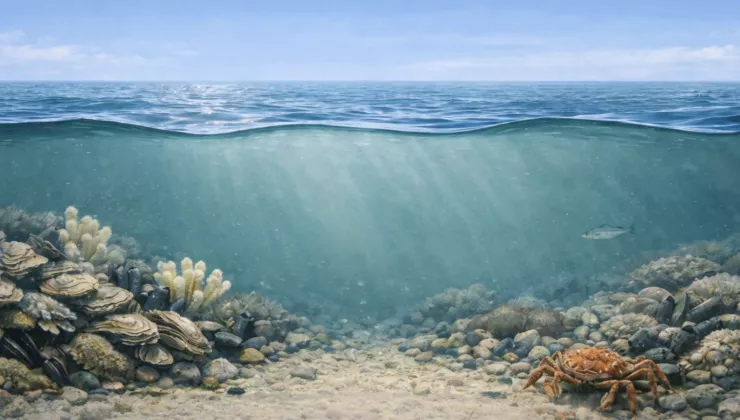More biodiversity thanks to the Princess Elisabeth island
At the beginning of October, grid operator Elia was given the green light to start work on the Princess Elisabeth Island. Today the company organised a press conference to explain its plans to boost biodiversity around the future energy island.
Based on the input from various experts, seven concrete measures have been developed to improve biodiversity above and below the waterline. With this initiative, Elia wants to be a pioneer in the sustainable construction and operation of offshore infrastructure.
Measures
- Storm wall with ledges on the southern, western and northern part of the energy island where cliff-nesting birds can breed, rest and recuperate;
- Three-dimensional relief panels at the four corners of the island where small fish and other small marine organisms can find shelter and food;
- Longlines with oyster baskets for the European flat oyster so as to support the development and growth of oyster reefs;
- Chaotic scour protection with complex edges around the entire island to create a range of diverse habitats where different animal species can forage, shelter and/or rest;
- Large boulders here and there around the island to make the environment more attractive to marine organisms;
- Oyster tables in the chaotic scour protection near the corners and the longlines to provide an extra boost for the creation of oyster reefs;
- Gravel beds connected to the chaotic scour protection.
Collaboration with experts
Elia called on a range of experts in nature conservation and the marine environment from public and private institutions, universities, consultancy firms and non-governmental organisations to work out the measures.
Blue Cluster and the following members and partners actively participated in this process: Flanders Marine Institute (VLIZ); Flanders Research Institute for Agriculture, Fisheries and Food (ILVO); Ghent University; IMDC; Mantis Consulting; ORG Permanent Modernity; Royal Belgian Institute of Natural Sciences (RBINS); and University of Antwerp.









